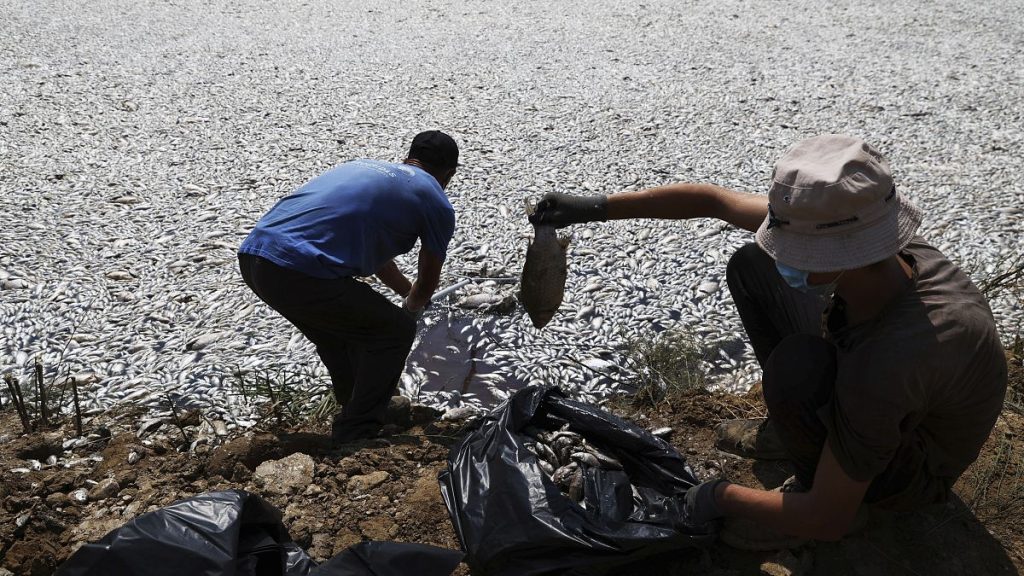Last year, floods followed by months of severe drought led to over 100 tonnes of dead freshwater fish washing into the central Greek port of Volos. The fish had been displaced from their normal habitats in Lake Karla and nearby rivers due to the extreme climate fluctuations. Authorities have been using fishing trawlers and earthmovers to remove the dead fish from the sea and transport them to an incinerator. The regional governor declared a state of emergency, and efforts are being made to end the phenomenon as quickly as possible.
The restoration of Lake Karla in 2018 was an attempt to combat the effects of drought in central Greece. However, the sudden rise in water levels during a deadly storm caused extensive flooding in the area. Subsequent low rainfall and heatwaves this summer further exacerbated the situation. Experts believe that the lack of a net placed at the mouth of the river leading into Volos allowed the freshwater fish to be carried into the sea, where they eventually died upon contact with seawater. The mayor of Volos criticized the regional authority for acting too slowly in response to the crisis and warned of the environmental disaster that could result from the rotting fish.
The stench of the dead fish has become unbearable in Volos, causing a significant drop in commercial activity in the popular tourist destination. The city’s Chamber of Commerce has taken legal action to seek damages, citing an estimated 80% decrease in business along the seafront. Many businesses, particularly in the catering industry, have suspended operations due to the repulsive stench that is affecting both residents and visitors. The impact on tourism in Volos has been severe, with concerns about the long-term consequences on the local economy.
Efforts to address the mass deaths of freshwater fish in Volos have been met with challenges, including the scale of the cleanup operation and the need for immediate action to prevent further environmental damage. Authorities are working to remove the dead fish from the bay and nearby rivers, using specialized equipment such as fishing trawlers and earthmovers. The regional governor’s declaration of a state of emergency reflects the gravity of the situation and the urgency of the response required. Cooperation among various stakeholders is important to effectively manage the crisis and mitigate its effects on the local community.
The restoration of Lake Karla, the source of the dead fish in Volos, aimed to address water management challenges in central Greece and improve environmental sustainability in the region. However, the extreme climate fluctuations that followed, including floods and drought, led to the displacement and mass death of freshwater fish. The failure to place a net at the mouth of the river exacerbated the situation, allowing the fish to enter the sea and perish. The impact on the local economy, particularly tourism, highlights the interconnectedness of environmental and economic issues and the need for integrated solutions to address complex challenges.
In conclusion, the mass deaths of freshwater fish in Volos underscore the vulnerability of natural ecosystems to extreme climate events and the importance of proactive measures to protect biodiversity and mitigate environmental risks. The response to the crisis, including the cleanup operation and efforts to support local businesses, reflects the need for coordinated action and collaboration among stakeholders. Addressing the root causes of the mass fish deaths, such as inadequate water management practices and insufficient environmental safeguards, requires long-term planning and investment in sustainable solutions. By learning from this incident and taking steps to enhance resilience to climate change, communities like Volos can better prepare for future challenges and safeguard their natural resources for future generations.


